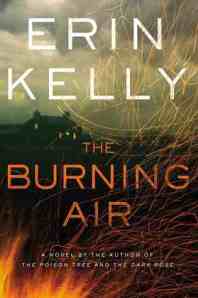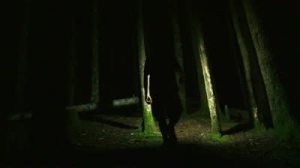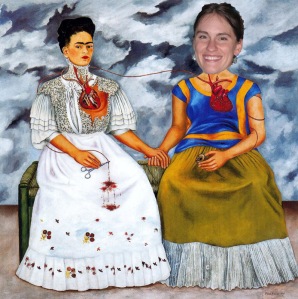new posts in all blogs
Viewing: Blog Posts Tagged with: Erin Kelly, Most Recent at Top [Help]
Results 1 - 3 of 3
How to use this Page
You are viewing the most recent posts tagged with the words: Erin Kelly in the JacketFlap blog reader. What is a tag? Think of a tag as a keyword or category label. Tags can both help you find posts on JacketFlap.com as well as provide an easy way for you to "remember" and classify posts for later recall. Try adding a tag yourself by clicking "Add a tag" below a post's header. Scroll down through the list of Recent Posts in the left column and click on a post title that sounds interesting. You can view all posts from a specific blog by clicking the Blog name in the right column, or you can click a 'More Posts from this Blog' link in any individual post.
I have a quasi-obsessive relationship with Erin Kelly’s work. When I see a new book of hers soon to be released, I pre-order it, because I must have it as soon as possible. She is further proof that the Europeans are really kicking our ass in the literary realm.
I first met her through The Poison Tree (which is still arguably my favorite of her books). She’s British; I’ve never been to London, so she painted a world for me in Poison Tree of youthful gluttony, violence, and horror, surrounded by Brit charm and vengeance. How can you not love that? Then came The Dark Rose, another thriller filled with regret, angst, and sex. Do you see a pattern here? Erin Kelly loves characters who linger in darkness, but her books are not downers; they’re just creepy and they have a way of making you squirm.
 Her most recent opus, The Burning Air, was only released in America weeks ago. I pre-ordered it (duh), so I had a copy in my hands day of its release. Did I read the synopsis? Nope. The book could have been about two kids playing on a swing set, and I would buy it simply because Erin Kelly wrote it—and when she writes, she doesn’t just put words on a page. She uses words to create images that stay with you for hours, days, weeks after you’ve put the book down.
Her most recent opus, The Burning Air, was only released in America weeks ago. I pre-ordered it (duh), so I had a copy in my hands day of its release. Did I read the synopsis? Nope. The book could have been about two kids playing on a swing set, and I would buy it simply because Erin Kelly wrote it—and when she writes, she doesn’t just put words on a page. She uses words to create images that stay with you for hours, days, weeks after you’ve put the book down.
The Burning Air is no different than her first two fantastic pieces of literature. This one follows the close-knit MacBrides as they plan a weekend visit to the family barn in Devon, following the death of their worshipped matriarch, Lydia. The grown up kids arrive with their children and all their significant others, including a new addition to the family—a strange, quiet girl named Kerry. Together with their father, they plan to scatter Lydia’s ashes at the barn, the place where they spent so many happy days with dear mum.
As expected, things go incredibly awry. I’d love to tell you what things go awry, but of course, I can’t. Where’s the fun in ruining the suspense? I will say … you’ll never see it coming.
Erin Kelly has a telltale modus operandi: she loves jumping around in time. This book takes place in the “present,” but all things that happen in the “present” are based on things (horrible things) that happened in the “past.” Kelly also often jumps from character to character, developing entire segments from different character perspectives. Although she is a genius at both of these literary techniques, her true mind-boggling skill rests in her use of suspense.
 Just like in The Poison Tree and The Dark Rose, there are moments in The Burning Air when I had to stop, reread, reread again, and then shout, “Oh, no she didn’t!” I tried to keep Jake abreast of plot developments, but as soon as I explained one aspect, the next day, there would be a new twist, and Jake would be left asking, “But I thought you said <insert character name> was crazy,” when in fact, <insert character name> is completely sane but surrounded by a crazy situation. No one keeps me guessing like Erin Kelly.
Just like in The Poison Tree and The Dark Rose, there are moments in The Burning Air when I had to stop, reread, reread again, and then shout, “Oh, no she didn’t!” I tried to keep Jake abreast of plot developments, but as soon as I explained one aspect, the next day, there would be a new twist, and Jake would be left asking, “But I thought you said <insert character name> was crazy,” when in fact, <insert character name> is completely sane but surrounded by a crazy situation. No one keeps me guessing like Erin Kelly.
Feel free to jump in to this, her newest release. I promise that once you’ve finished, you’ll go back and read her others. Not only can she make guts and gore sound beautiful, but Kelly redefines the phrase “page-turner.”


I’m not happy to admit the rest of the world is kicking our ass in literature. Of my current four favorite authors, THREE of them are from overseas: Carlos Ruiz Zafon (Angel’s Game) is Spanish, Erin Kelly (The Poison Tree) is English, Felix Palma (Map of Time) is Spanish, and thank goodness, Ransom Riggs (Miss Peregrine’s Home for Peculiar Children) is American. These odds are not good, and I have a feeling American writing will soon be extinct simply because it cannot stand up to the Europeans.
 I came to this conclusion after finishing the recently released Map of Time by Felix Palma, because frankly, his book blew my mind. If I’d read up on the guy, I should have seen this coming. He’s been publishing since 1998, in Spanish, of course. Based on the descriptions of his books, he resembles our generation’s H.G. Wells (more on him later). Map of Time won the Ateneo de Sevilla Award in 2008, and it’s his first (and only) book published in the United States.
I came to this conclusion after finishing the recently released Map of Time by Felix Palma, because frankly, his book blew my mind. If I’d read up on the guy, I should have seen this coming. He’s been publishing since 1998, in Spanish, of course. Based on the descriptions of his books, he resembles our generation’s H.G. Wells (more on him later). Map of Time won the Ateneo de Sevilla Award in 2008, and it’s his first (and only) book published in the United States.
The cover is enough to make you want to buy the book, but the synopsis on the front flap ain’t bad either: “Set in Victorian London with characters real and imagined, The Map of Time is a page-turner that boasts a triple play of intertwined plots in which a skeptical H.G. Wells is called upon to investigate purported incidents of time travel and to save lives and literary classics, including Dracula and The Time Machine, from being wiped from existence.” There are cameos by Jack the Ripper and the Elephant Man, too, and much discussion over a supposed “fourth dimension.”
Not only is the story of interest to fans of science fiction, history, or romance, the narrative voice—reminiscent of another European, J.K. Rowling—is whimsical and relaxed. Palma utilizes a third-person omniscient perspective. He sees into the heads of multiple characters at one time, and he often converses with you—the reader. For instance, “I shall take the opportunity to welcome you to this tale, which has just begun, and which after lengthy reflection I chose to begin at this juncture and not another.” Wonderful!
 Be prepared to deeply consider the ramifications of time travel. If you’re not prepared to do so, you’re not prepared to read Map of Time. Palma is not only a master of the written word, but he’s a science fiction genius, to have thought up the questions posed by time travel. He posits that we each determine our current dimension while, possibly, we also live on in other dimensions via the choices we did not make. In the words of Jack Kerouac, “What is waiting for me in the direction I don’t take?” It’s a serious mind-f@#%, for reader and fictional character alike, and it’s worth every word on every page.
Be prepared to deeply consider the ramifications of time travel. If you’re not prepared to do so, you’re not prepared to read Map of Time. Palma is not only a master of the written word, but he’s a science fiction genius, to have thought up the questions posed by time travel. He posits that we each determine our current dimension while, possibly, we also live on in other dimensions via the choices we did not make. In the words of Jack Kerouac, “What is waiting for me in the direction I don’t take?” It’s a serious mind-f@#%, for reader and fictional character alike, and it’s worth every word on every page.
I could tell you more about the plotline, but eh, I don’t want to ruin it for you. I will say that I felt personally connected to Map of Time because, with a lead character like H.G. Wells, it has a lot to do with the life of a writer and artistic self-loathing. I will also say that if American authors don’t want to be left in the lurch, we better up our game—fast. I leave you with some wisdom from Palma’s protagonist, H.G. W
Last night, I attended my monthly critique group. We were set to discuss segment five of my over 300-page novel, currently a work-in-progress. The girls didn’t like segment five. They said my writing was sub-par, and some of the character behaviors didn’t make sense. This is a good critique group, who often says interesting, illuminating things, but last night, I could barely take it. Why? Because it got me wondering: if I’m already messing things up within the first hundred pages, who’s to say the next two hundred pages don’t completely suck? Who’s to say I don’t completely suck?
So is the interior dialogue of a writer.
As a writer, I am the following:
Moody
Easily discouraged
Impatient
Whiny
Fragile
Touchy
Cynical …
You get the idea.
My writer persona, although pretty on the page, is not pretty in life. Then again, writers aren’t pretty—not emotionally, at least. Emotionally, we’re whiny, bitchy, fragile souls, who have become unavoidably cynical from years of rejection. We’ve all received the form letter telling us, in so many words, “No, your work is awful, but I don’t have the balls to tell you, so I’ll tell you this isn’t what we’re looking for right now.” We’ve all found authors who make us want to give up because we’ll never be as good as, say, Carlos Ruiz Zafon, or the newly discovered Erin Kelly. We’ve all considered getting a day job, because what’s the use in spending a year writing a book when it’ll just get thrown in the garbage anyway? Finally, we’ve all had a little too much scotch and bemoaned our station while smacking our heads against a desk and saying, “I suck, I suck, I suck.”

Ah, the life of a troubled artist ...
There are plenty of inspirational books that tell writers to keep at it, it’ll be okay, just keep trying. One of these is Stephen King’s
On Writing. His is more a philosophy book than a book about writing, but in his way, he gets the job done. For Christmas, I received David Morrell’s
The Successful Novelist. I started reading it yesterday, and the first chapter is called “Why Do You Want to Be a Writer?” When Mr. Morrell has asked this question in the past, there are a variety of responses. Money, for one, although from what I can tell only about twenty-five authors actually make money. Fame, but Oprah scares me, so why would you want to be famous? I thought about it myself, and I came up with my answer.
So, Mr. Morrell, in response to your question, “Why Do You Want to Be a Writer?” I offer the following response: Nobody in their right mind wants to be a writer. Being a writer is an awful, solitary, thankless profession that you may work hard at and never succeed in. Writing makes you crazy. Writing makes you miserable. The passion to write is a passion I wouldn’t wish upon my worst enemy. So why? Why does Sara Dobie want to be a writer?
Because I have to be. Because there is something deep within my DNA that made me this … thing. If I don’t write for a couple days, I get horrible nightmares. If I don’t cleanse my imagination often, it gets freaky up there. I’ve tried to escape my fate. For years, I was a bartender, followed
 Her most recent opus, The Burning Air, was only released in America weeks ago. I pre-ordered it (duh), so I had a copy in my hands day of its release. Did I read the synopsis? Nope. The book could have been about two kids playing on a swing set, and I would buy it simply because Erin Kelly wrote it—and when she writes, she doesn’t just put words on a page. She uses words to create images that stay with you for hours, days, weeks after you’ve put the book down.
Her most recent opus, The Burning Air, was only released in America weeks ago. I pre-ordered it (duh), so I had a copy in my hands day of its release. Did I read the synopsis? Nope. The book could have been about two kids playing on a swing set, and I would buy it simply because Erin Kelly wrote it—and when she writes, she doesn’t just put words on a page. She uses words to create images that stay with you for hours, days, weeks after you’ve put the book down. Just like in The Poison Tree and The Dark Rose, there are moments in The Burning Air when I had to stop, reread, reread again, and then shout, “Oh, no she didn’t!” I tried to keep Jake abreast of plot developments, but as soon as I explained one aspect, the next day, there would be a new twist, and Jake would be left asking, “But I thought you said <insert character name> was crazy,” when in fact, <insert character name> is completely sane but surrounded by a crazy situation. No one keeps me guessing like Erin Kelly.
Just like in The Poison Tree and The Dark Rose, there are moments in The Burning Air when I had to stop, reread, reread again, and then shout, “Oh, no she didn’t!” I tried to keep Jake abreast of plot developments, but as soon as I explained one aspect, the next day, there would be a new twist, and Jake would be left asking, “But I thought you said <insert character name> was crazy,” when in fact, <insert character name> is completely sane but surrounded by a crazy situation. No one keeps me guessing like Erin Kelly.





This sounds absolutely fantastic!!! I am so excited to start a little book-swapping club with you. Promise I’ll follow up this time with something a little less heavy and twisted as “Let the Right One In”.
Sounds fascinating! I love it!